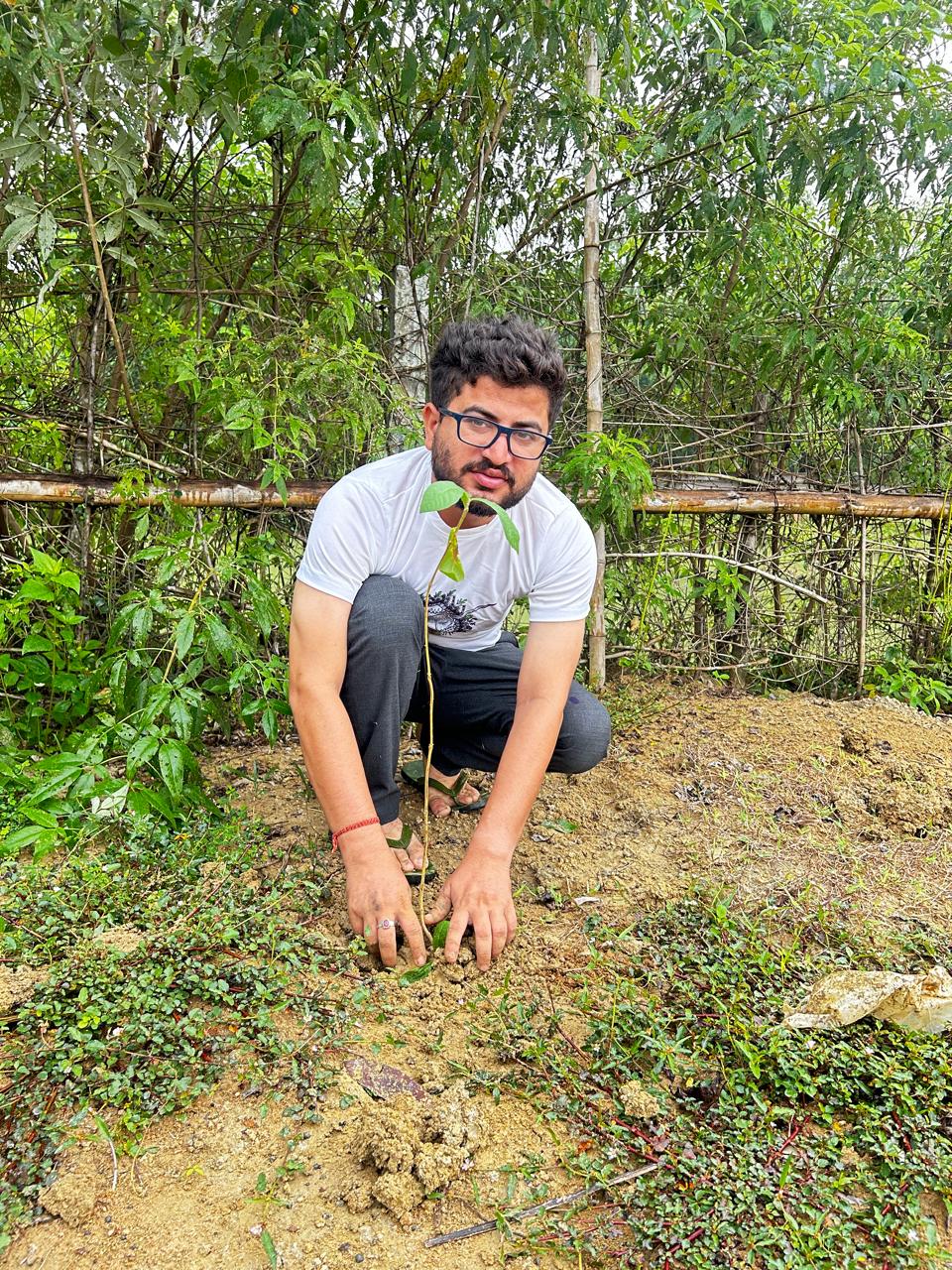Key Projects and Impact
Fostering Inclusive Community Development
PROJECT SEA SCAPE
Odisha’s coastline, stretching over 480 km, is a vital habitat for numerous marine species, including the endangered horseshoe crab (Tachypleus gigas) and the red crab (Portunus pelagicus). These species play crucial roles in maintaining the delicate balance of coastal ecosystems. However, climate change poses significant threats to Odisha’s marine biodiversity. Rising sea temperatures alter species distribution and abundance, while increased storm frequency and intensity, such as Cyclone Fani in 2019, destroy habitats and disrupt ecosystems. Coastal erosion and sea-level rise also threaten nesting sites and breeding grounds.
The horseshoe crab, a keystone species, is particularly vulnerable. Its nesting sites are destroyed by coastal erosion and cyclones, while entanglement in fishing gear and habitat degradation reduce populations. Climate-driven changes in sea temperature and salinity also impact their development. Similarly, red crabs face habitat destruction and degradation from coastal development and climate change, overfishing, and destructive fishing practices.
Climate change also affects other species, such as olive ridley sea turtles, dolphins, and whale sharks, which face threats from pollution, habitat destruction, and changing ocean chemistry. To address these challenges, a comprehensive approach is necessary, one that involves local communities, governments, and organizations.
About Project SeaScape:
Project SeaScape aims to conserve Odisha’s coastal biodiversity, focusing on horseshoe crabs, red crabs, and other vulnerable species. We will protect and restore habitats, promote sustainable fishing practices, support community-led conservation initiatives, and enhance climate resilience and disaster preparedness.
Our Efforts So Far:
Ray of Hopes has conducted research on horseshoe crab and red crab populations, engaged with local communities through awareness programs, collaborated with local organizations for conservation efforts, and provided training on sustainable fishing methods.
Gap:
Despite our efforts, significant gaps remain. Community participation in conservation initiatives is limited, and infrastructure for sustainable fishing practices is inadequate. Alternative livelihood opportunities are insufficient, and policy support for marine conservation is lacking.
Objectives:
Project SeaScape seeks to address these gaps by establishing community-led conservation initiatives, developing sustainable fishing cooperatives, promoting eco-tourism and alternative livelihoods, and advocating for marine conservation policies.
Activities Planned:
In the first year, we will focus on habitat restoration and protection, training on sustainable fishing practices, establishing fishing cooperatives, and eco-tourism infrastructure development. In the second year, we will conduct marine biodiversity monitoring, provide alternative livelihood training, engage in policy advocacy and stakeholder engagement, and support community-led conservation initiatives.
Project Overview: Enhancing Resilience in Odisha's Coastal Communities
Odisha, situated on India’s eastern coast, is a state that is inherently vulnerable to the devastating impacts of cyclones, floods, and droughts. Its extensive 480-kilometer coastline puts a significant portion of its population at risk, with approximately 30% of its residents residing in coastal districts that are susceptible to climate-related disasters. The frequency and intensity of these events have increased over the years, posing significant threats to human life, livelihoods, and infrastructure.
The state’s geography, with its low-lying coastal areas and dense population, makes it particularly prone to natural disasters. Cyclones, such as the devastating Cyclone Fani in 2019, Cyclone Phailin in 2013, and Cyclone Dana in 2024 (which affected Kendrapada and Balasore districts), have caused widespread destruction, affecting millions of people and disrupting the social and economic fabric of the region.
Furthermore, rising sea temperatures, increased storm intensity, and coastal erosion exacerbate the risks, making it essential to adopt a proactive and multi-faceted approach to enhance resilience in Odisha’s coastal communities.
This project aims to address the pressing needs of Odisha’s coastal communities by enhancing their resilience to climate-related disasters. Through a combination of community-led initiatives, capacity building, and climate-resilient infrastructure development, this project seeks to reduce the vulnerability of coastal populations and promote sustainable livelihoods. By prioritizing the needs of marginalized groups, including women, children, and the elderly, this project ensures that no one is left behind in the quest for resilience.
The project’s objectives are four-fold:
1. Enhance community resilience to cyclones and climate change
2. Improve disaster preparedness and response
3. Support sustainable livelihoods and economic recovery
4. Promote climate-resilient infrastructure and environmental conservation
At Ray of Hopes, we have made significant strides in enhancing resilience in Odisha’s coastal communities. Our efforts have focused on:
1. Research and Assessment: Conducted vulnerability assessments and climate data analysis.
2. Community Engagement: Established community-led disaster management committees and trained 500 community members.
3. Capacity Building: Trained 200 local officials on climate-resilient infrastructure and supported 300 fishermen with sustainable livelihood practices.
4. Partnerships and Collaborations: Partnered with local organizations, government agencies, and international experts.
5. Emergency Response: Provided emergency relief during Cyclone Dana (2024) and supported rehabilitation efforts.
Gaps and Challenges
Despite our progress, significant gaps remain:
1. Limited community participation in disaster management.
2. Inadequate infrastructure for climate resilience.
3. Insufficient livelihood support and economic empowerment.
4. Limited access to climate information and early warning systems.
5. Inadequate policy support for coastal community resilience.
Activities Planned (2024-2026)
To address the gaps, we plan:
Year 1:
1. Community-led disaster management initiatives.
2. Climate-resilient infrastructure development.
3. Sustainable livelihood promotion and economic empowerment.
4. Climate information and early warning system establishment.
Year 2:
1. Scaling up community-led initiatives.
2. Enhancing climate-resilient infrastructure development.
3. Strengthening partnerships and collaborations.
4. Advocacy and policy influence for coastal community resilience.
Expected Outcomes (2024-2026)
Our interventions aim to achieve:
1. Enhanced community resilience to cyclones and climate change.
2. Improved disaster preparedness and response.
3. Increased sustainable livelihoods and economic empowerment.
4. Strengthened climate-resilient infrastructure and environmental conservation.
5. Improved policy support for coastal community resilience.
UTTAMA (Empowering Tribal Women through Skill Development and Entrepreneurship)
Background:
In the lush hills and forests of Odisha’s tribal regions, thousands of women struggle to break free from the shackles of poverty, social exclusion, and marginalization. Limited access to education, healthcare, and economic opportunities has rendered them voiceless and powerless. Their stories remain untold, their dreams unrealized.
According to the 2011 Census, Odisha’s tribal population constitutes 22.1% of the state’s total population, with 47.8% living below the poverty line. The female literacy rate stands at a dismal 37.4%. These statistics underscore the dire need for targeted interventions.
Ray of Hopes envisions a transformative shift in the lives of these women. Through UTTAMA, we aim to unlock their potential, foster entrepreneurship, and promote socio-economic empowerment.
About UTTAMA
UTTAMA seeks to enhance the economic and social status of 500 household women in tribal Odisha through skill development, entrepreneurship support, and community mobilization.
Problem Statement/Gaps:
– Limited economic opportunities for tribal women
– Lack of access to education and skill development
– Social exclusion and marginalization
– Limited decision-making power
Objectives:
– Enhance economic status of tribal women through skill development and entrepreneurship
– Improve access to education and healthcare
– Promote social inclusion and decision-making power
Activities Planned:
1. Skill Development Training (vocational, business, and soft skills)
2. Entrepreneurship Support (business plan development, microfinance access, market linkage)
3. Community Mobilization (self-help groups, community sensitization)
4. Capacity Building (training of trainers, community leadership)
Expected Outcomes:
1. Improved economic status of 500 household women
2. Enhanced entrepreneurship skills and knowledge
3. Increased confidence and self-esteem
4. Formation of 10 self-help groups and 20 entrepreneurship units
Team

SWASTIK KUMAR DEY
Swastik’s journey from an engineer to a social activist exemplifies his commitment to social change. With over a decade of experience, Swastik motivates his team with unyielding dedication and has led initiatives in child rights, environmental protection, and sustainable development.

OMKAR MOHAN DASH
A lawyer and social activist, Omkar combines legal expertise with a passion for marine conservation. Despite a challenging journey, he emerged as an advocate for marginalized communities and marine biodiversity, working tirelessly to protect vulnerable species along Odisha’s coast.

SASMITA MAJHI
Sasmita, a social entrepreneur and artist, has empowered countless individuals across Odisha through her work with NGOs and the government. Her background in social work and agricultural research reflects her commitment to community-driven change and women’s empowerment.
